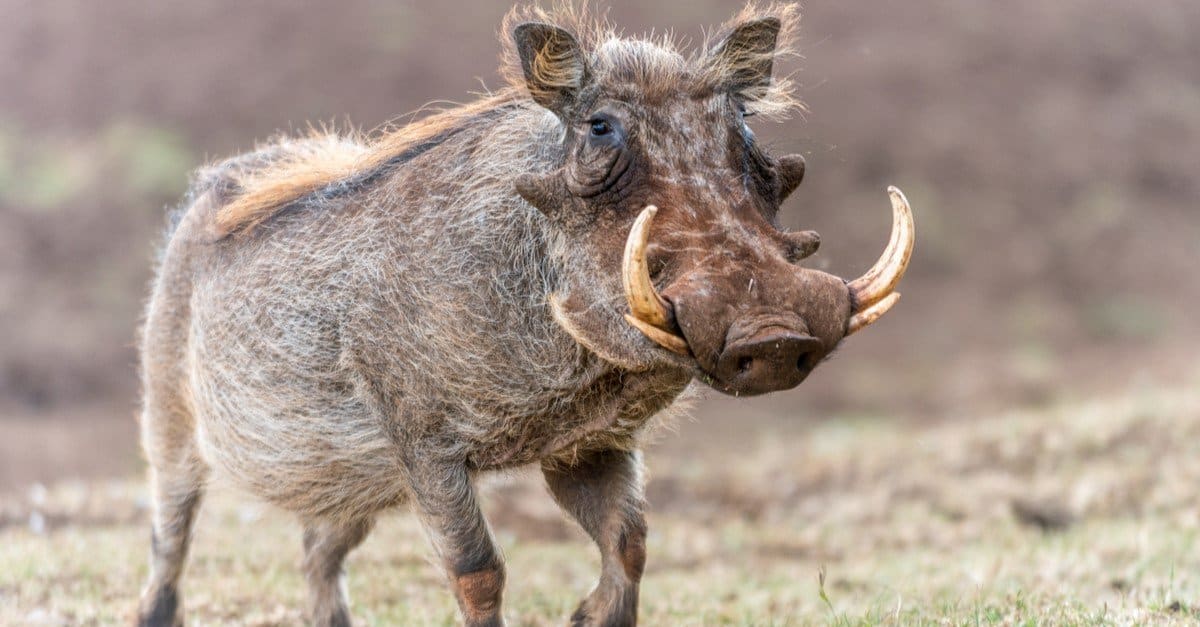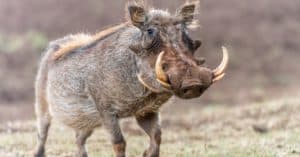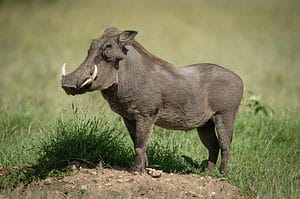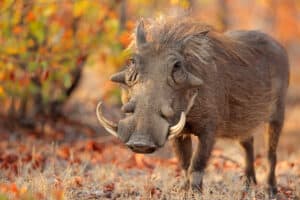Warthogs are some of the most protective and defense animals on earth, especially when it comes to their young. In the face of a threat, they will not hesitate to fight back with all the power they can muster. Watch below as a group of warthogs charges at a crocodile in an attempt to protect their young!
The clip begins by showing a large crocodile quickly moving through a shallow body of water. The humongous beast is locked onto a group of young warthogs. In an instant, the crocodile snaps, attempting to get a bite at one of the small warthogs.
Three adult warthogs quickly run to the scene and begin charging toward the crocodile. With their charges, they bare their sharp tusks. Although the crocodile attempts to fight back, it is stunned and halts its original attack.
Click the Link Below to Watch This Croc in Action:
After the crocodile begins to back away, the group of adult warthogs begins corralling the young warthogs together. At the same time, the adults also keep an eye on the crocodile, afraid of a future attack. The video ends by showing the large group of warthogs slowly moving away as the crocodile stays still, unable to get a successful catch for the day!
What Do Warthogs Eat?
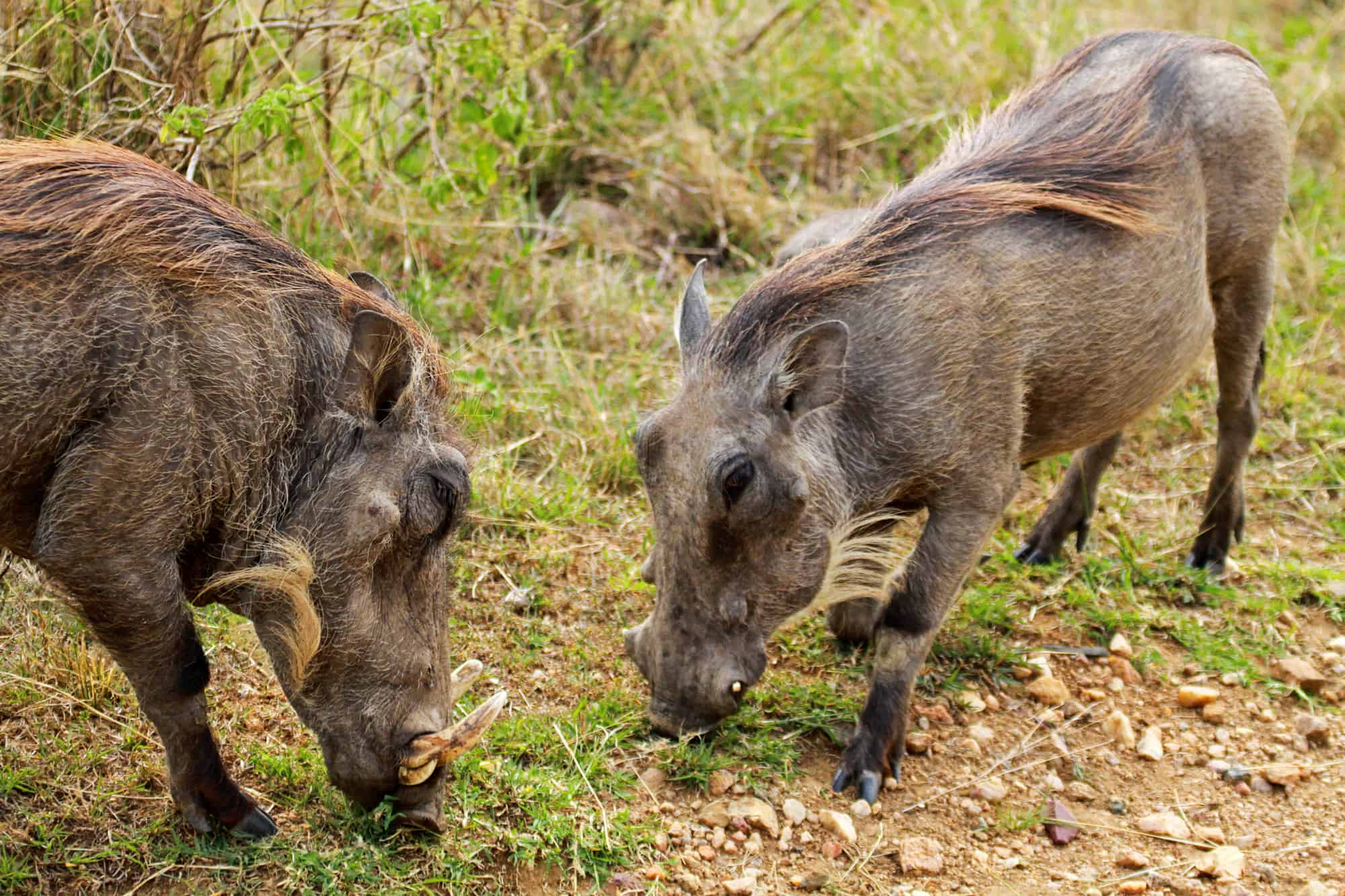
Warthogs eat a wide variety of foods. They typically tend to enjoy plants the most but will venture to eat some meats on occasion.
©iStock.com/Tomasz Dutkiewicz
Warthogs are incredibly specialized yet diverse animals that can eat a variety of foods. They eat a lot of plants. For instance, berries, roots, shrubs, grasses, and other common vegetation are all on the menu for them.
A large portion of their diet consists of roots and material that lies within the ground. To help them find food deep within the ground, they have an incredible sense of smell. Additionally, they have touch tusks and powerful legs, which can aid in digging.
In addition to plants, they can eat meat on occasion. Typically, this is in the form of small insects or scavenged animals. Most sources cite that warthogs prefer the plant items they eat and will switch to eating meat when resources dwindle.
Warthogs Are Defensive Geniuses
As mentioned earlier, warthogs are amazing at defending against predators. On top of burrowing and digging, their tusks function well as defensive weapons that they can use to charge at predators. Likewise, their muscular legs allow them to run at very fast speeds, which can increase the effectiveness of their defense.
Warthogs also have a very defensive and aggressive temperament. When they are confronted with a threat, they instinctively charge and attack as their main form of defense. They can become especially protective and aggressive if their offspring are threatened. This is what was shown in the video below!
There are many documented stories of warthogs charging with reckless abandon when their children are being hunted by predators.
Is It Normal for a Crocodile to Eat a Warthog?
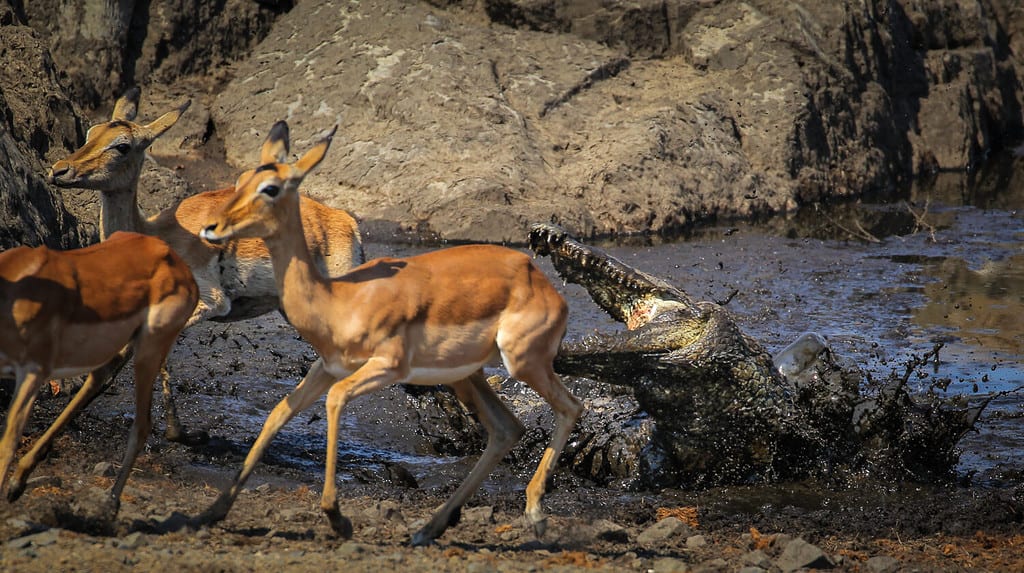
Crocodiles are opportunistic predators and will attempt to eat anything that passes into their territory.
©JMx Images/Shutterstock.com
The normal diet of a crocodile consists of fish, small mammals, crustaceans, reptiles, and amphibians. They are known to be apex predators, meaning they are at the top of the food chain. They are opportunistic feeders, meaning they will take advantage of any food source that is available to them.
Crocodiles typically hunt during the night, as this is when their prey is most active. They use their powerful jaws and sharp teeth to catch their prey. Bird eggs, insects, and fruits are also part of a crocodile’s diet.
It is not common for a crocodile to eat a warthog. Warthogs are large animals and require a lot of energy to hunt and consume. Therefore, it is not a normal part of a crocodile’s diet. However, if a crocodile is presented with an opportunity to eat a warthog, it may take it.
Thank you for reading! Have some feedback for us? Contact the AZ Animals editorial team.

